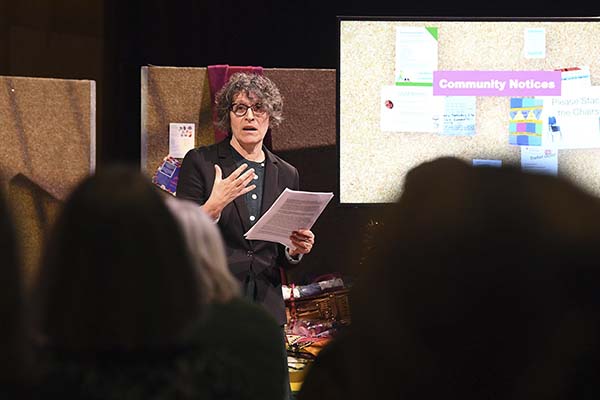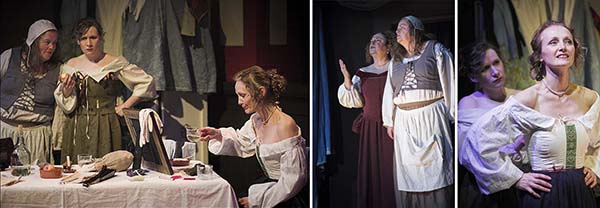Misogyny has been in theatre since it first began. When will it stop?
15th December 2023For centuries women in the UK have fought for their place in theatre. Looking back through the years, things have changed for women within the industry, but have they changed enough?
Going all the way back to 1350 when theatre really started to take off, we saw men dominating the stage in both male and female roles and the more prestigious industry positions.
From this point women were banned from acting publicly; however, it has never really been clear why. There was no law prohibiting women acting on stage, but it was deemed indecent, and a possible compromise to their reputation if seen to be making money from public performances. Who were making these decisions? Men?
Women did appear on the UK stage during Charles I reign from 1625; but they were not English, they were French. Europe had a totally different perception and attitude about women in theatre. It was the King’s French wife who influenced the performance with many theatre goers ‘fascinated and horrified’ of the appearance of women on stage. Following the play one audience member, Thomas Brande, wrote to the Bishop of London to say:
“Glad I am to say that they [the actresses] were hissed, hooted, and pippin-pelted from the stage, so as I do not think they will soon be ready to trie the same againe.”
During the English Civil War, theatre was banned. It wasn’t until 1660, when Charles II reinstated theatre, that women started to be recognised as actors and playwrights.
There was a major breakthrough on 8th December 1660, when actress Margaret Hughes, who at just 15 years old, made theatre history by becoming the first woman to perform on an English stage. She played the role of Desdemona in Shakespeare’s play Othello.
This paved the way for more females to take the stage, including ‘The Female Wits’, created by Catharine Trotter, Mary Pix and Delariviere Manley in the early 1700. They wrote, directed and acted in their 19 plays with great success, but of course didn’t make as much money as their male counterparts.
By the end of the 17th century, it was normal to see a woman on stage. There had been a long-awaited cultural shift where women were being recognised and valued in theatre for their talent and contributions.
Why are we giving you a very brief history lesson? Well, we wanted to show that it has never been easy for women in theatre. There has of course been a great deal of change within the industry over the last 600 years, but women are still struggling with equality and misogyny.

April De Angelis wrote the dramatic comedy, ‘Playhouse Creatures’, set in 1669 at the time when women were first allowed on the stage to act. It focuses on five inspirational female artists - Nell Gwyn, Elizabeth Farley, Rebecca Marshall, Doll Common and Mary Betterton – examining their lives, and telling an interesting tale of how these Restoration actresses were treated.
Did you know that playwrights deliberately wrote pieces where women would show their bodies - legs and breasts, and men in the audience paid to watch them in their dressing rooms?

We produced ‘Playhouse Creatures’ with our community theatre company Pepper’s Ghost in 2008. I played Mrs Betterton the actor manager’s wife who had some power. When she became middle aged, she was cast aside by her husband and younger models were wanted.
The play also shows how another actress becomes pregnant and end up on the streets, and another is accused of witchcraft. It’s a very powerful piece showing just how precarious women’s positions were in theatre in those times and still under men’s control.
It was the recent piece in The Stage with Katie Mitchell that also got me thinking.
Mitchell is a highly successful theatre director who has directed over 100 productions on stages, including The National Theatre and The Royal Court. She works between the UK and Germany. Her experience with British theatre has not always been a positive one. Not only does she have to contend with misogyny, but there are also many ‘constraints’ and ‘unwritten rules’ that stifles creativity and stops her getting the best out of her work.
She said to Lyn Gardener in another interview, “I noticed how I was always told to pull back my conceptual ideas in Britain, or, as one British critic so kindly put it, to ’stop putting my dirty fingerprints all over the play’, whereas in Germany I was told to go further."
Why is there still such a disparity between the way we do things versus Europe?
Throughout her career she has come across male colleagues and critics who have called female directors ‘difficult’. Why is it then when women get a top leading role, men want to tear them down and belittle them? These negative attitudes of trying to make women feel undervalued must stop. It is discriminatory and unnecessary.
We should be raising her up for being in this fantastic position of power and supporting her, just like we would do expect to do if it was a man.
Mitchell did say that the UK is ‘steaming ahead’ with ‘diversity and intersectionality’ and thinks the future of theatre could be 'working across national and cultural boundaries' – so this could be a turning point for women in British theatre.
Another great moment for women, happened just this week when Indhu Rubasingham, the first woman and first person of colour, was appointed the new director of the National Theatre.
Over its 60 years, the National has been led by ‘six posh white men’, so this appointment will be a breath of fresh air with new creativity. Indhu’s arrival has been met with positivity from the industry saying she is the ‘perfect choice’. I’m looking forward to seeing what she does next.
It is about time that women are celebrated within theatre and seen in these top roles, leading large theatres and theatre companies.
Women have a great representation behind the scenes in costume, wigs etc - all the creative and very much needed areas of the industry. But wouldn’t it be great to see more women in decision making, directing, producing and playwriting roles, so we can share our creativity and talent, and finally tell our stories?
We’ve dealt with misogyny and men taking our spotlight for hundreds of years. We can’t let it continue.